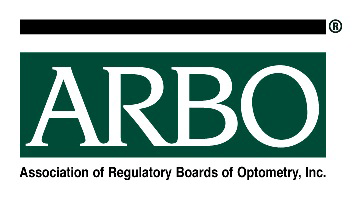COPE began as a service for ARBO’s member boards to ensure the consistency and quality of optometric continuing education. The COPE accreditation program reduced the cost, redundancy, and confusion of trying to sort out the requirements of each individual state board. Over time, the COPE accreditation program has evolved to meet the highest standards for independent, defensible continuing education. In 2017, in response to a resolution passed by ARBO’s member boards, the COPE program achieved the milestone of becoming substantially equivalent to ACCME, the gold standard in healthcare continuing education. Now, in 2018 another milestone has been reached. COPE has joined into the Joint Accreditation for Interprofessional Continuing EducationTM collaborative. This accomplishment was also directed by a resolution passed by ARBO’s member boards.
Joint Accreditation for Interprofessional Continuing Education offers organizations the opportunity to be simultaneously accredited to provide medical, nursing, pharmacy, optometry, and PA continuing education through a single, unified application process, and set of accreditation standards. Joint Accreditation is the first and only program in the world offering this benefit. A leading model for interprofessional collaborative practice, Joint Accreditation for Interprofessional Continuing Education establishes the standards for education providers to deliver quality, independent, accredited interprofessional continuing education (IPCE).
Launched in 2009, Joint Accreditation for Interprofessional Continuing Education began as a collaboration of the Accreditation Council for Continuing Medical Education (ACCME), the Accreditation Council for Pharmacy Education (ACPE), and the American Nurses Credentialing Center (ANCC). The American Academy of PAs (AAPA), and the Association of Regulatory Boards of Optometry’s Council on Optometric Practitioner Education (ARBO/COPE) joined the collaborative in January 2018.
Interprofessional continuing education (IPCE) is when members from two or more professions learn with, from, and about each other to enable effective collaboration and improve health outcomes (ACCME, ACPE, ANCC, 2015). Since its introduction, interprofessional continuing education has been shown to improve practice and patient outcomes. Jointly accredited CE providers can identify opportunities for team-based education through practice gap analysis and determine how team-based education can support healthcare priorities at much higher levels than the individual level including institutional, community, national, and/or international level.
Why Joint Accreditation for Interprofessional CE Is Important
- National and international health leadership organizations have identified interprofessional education and team-based care as a critical component of healthcare improvement.
- The Institute of Medicine’s seminal 2003 report Health Professions Education: A Bridge to Quality stated that health professionals need to “cooperate, communicate, and integrate care in teams to ensure that care is continuous and reliable.”
- According to the World Health Organization, interprofessional education is an action that “occurs when students from two or more professions learn about, from, and with each other to enable effective collaboration and improve health outcomes.” (Framework for Action on Interprofessional Education and Collaborative Practice, WHO, 2010)
- Joint Accreditation promotes interprofessional education that leads to improved healthcare delivery and better patient outcomes.
High Standards
- To be eligible for Joint Accreditation for Interprofessional Continuing Education, an organization needs to demonstrate that for the previous 18 months its structure and processes to plan and present education by and for the healthcare team have been fully functional; and that at least 25% of its educational activities have been designed by and for healthcare teams. Also, the organization must demonstrate compliance with the Joint Accreditation criteria.
- Jointly accredited continuing education providers must meet rigorous standards for educational quality and independence–including the ACCME Standards for Commercial Support: Standards to Ensure Independence in CME ActivitiesSM.
- With Joint Accreditation for Interprofessional Continuing Education, ACCME, ACPE, ANCC, AAPA, and ARBO/COPE seek to assure the public that healthcare teams receive education designed to be independent, free from commercial bias, based on valid content, and effective in improving the quality and safety of care delivered by the team.
Benefits and Opportunities
- Joint Accreditation for Interprofessional Continuing Education increases operational efficiency, saving time, money, and resources for continuing education providers, as they can take advantage of one unified, streamlined process rather than obtaining different accreditations.
- Joint Accreditation for Interprofessional Continuing Education enables continuing education providers to position their programs as strategic partners in local, national, and international efforts to advance team-based care and healthcare improvement.
Given the breadth, depth, quality, and diversity the COPE program has achieved, ARBO has provided its member boards with a tool that should be considered the required standard for all optometric continuing education.
*Much of the informational content was taken from the Joint Accreditation website: http://www.jointaccreditation.org
